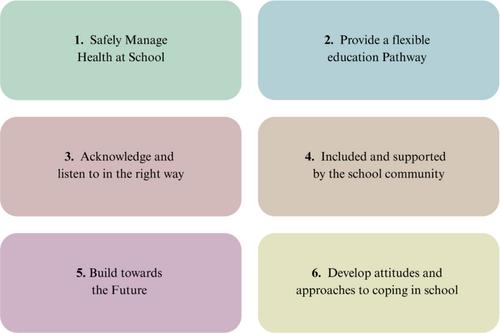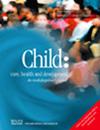Parents of Children and Young People With Long-Term Physical Health Conditions—Experiences of Navigating School
Abstract
Background
Children and young people (CYP) with different long-term physical health conditions report common needs at school, but little is known about the views of their parents. This research sought to provide the parent perspective on what secondary school-aged CYP with medical conditions require at school and the role parents play in negotiating support for their children.
Methods
Parents of CYP aged 11–18 years attending school in the United Kingdom, with one of 10 long-term physical health conditions, took part in interviews about their children's school experiences. To prioritise parent voice, participants completed a preparation activity to encourage them to have more control over the interviews. A needs analysis from the previous INSCHOOL CYP project was used as the basis for a framework analysis of parent interviews and supplemented with an analysis workshop with three parents.
Results
Twenty-seven parents participated from September 2023 to May 2024. Parent views of the needs their CYP have at school corroborated the six needs previously identified by CYP themselves: to safely manage health at school; for a flexible education pathway; to be acknowledged and listened to; to be included in and supported by the school community; to build towards the future; to develop attitudes and approaches to coping in school. In addition, parents reported far more examples of their CYP having significant emotional and mental health needs. Parents played a crucial role in compensating for unmet needs, advocating for CYP, advising schools and championing equality and inclusion. Parents also had their own needs: to feel confident their CYP are safe at school; to be listened to and involved; to have information about rights and responsibilities; and to have mental health and emotional support.
Conclusion
This parent-focused study strengthens an existing needs analysis for CYP, adding to evidence showing significant unmet needs in school. Parents play a crucial role in addressing failures to meet these needs. Navigating the system to secure support can have negative implications for home-school relationships and parent well-being. Requirements for parental agency to ‘battle’ through health and education systems exacerbate health inequalities, as not all parents are able to fulfil this function. Improvements are needed in the support currently offered to CYP with health conditions and their parents.


 求助内容:
求助内容: 应助结果提醒方式:
应助结果提醒方式:


